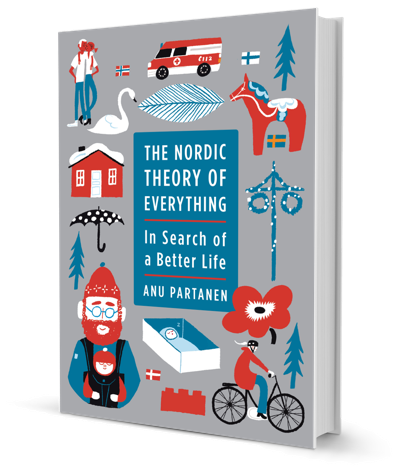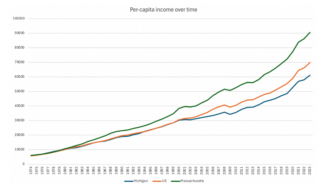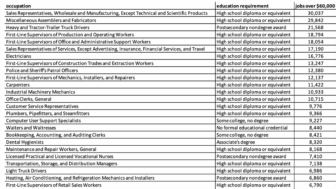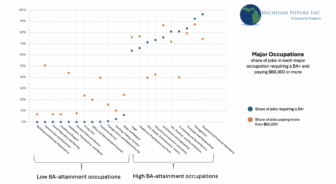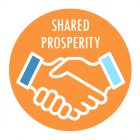
In a must-read New York Times article entitled Finland is a Capitalist Paradise, Anu Partanen and Trevor Corson describe a path for America to become a place with a capitalism that results in shared prosperity. Finland has rejected the notion that you have to choose one or the other. As described by Partanen and Corson the results are, almost certainly, what most Americans want: a growing economy that works for all.
The need to reform American capitalism so that it results in shared prosperity has been a central topic of this blog. We have explored that case in blogs about capitalists Ray Dalio, Nick Hanauer, Tom Wilson and Mark Benioff. Each making the case that American capitalism is no longer working for many and must be reformed so that it benefits all.
What makes Dalio, Hanauer, Wilson and Benioff newsworthy is that this point of view is almost never heard from American capitalists. Who overwhelming have peddled, for decades, the theory that you will imperil the American economy if you pursue a shared prosperity public policy.
As Partanen and Corson write, Finish capitalists overwhelming support shared prosperity because it is good for them and for capitalism. They write:
Finnish employers had become painfully aware of the threats socialism continued to pose to capitalism. They also found themselves under increasing pressure from politicians representing the needs of workers. Wanting to avoid further conflicts, and to protect their private property and new industries, Finnish capitalists changed tactics. Instead of exploiting workers and trying to keep them down, after World War II, Finland’s capitalists cooperated with government to map out long-term strategies and discussed these plans with unions to get workers onboard.
More astonishingly, Finnish capitalists also realized that it would be in their own long-term interests to accept steep progressive tax hikes. The taxes would help pay for new government programs to keep workers healthy and productive — and this would build a more beneficial labor market. These programs became the universal taxpayer-funded services of Finland today, including public health care, public day care and education, paid parental leaves, unemployment insurance and the like.
As Partanen and Corson continue, the result is:
… Finland has become one of the world’s wealthiest societies, and like the other Nordic countries, it is home to many hugely successful global companies.
In fact, a recent report by the chairman of market and investment strategy for J.P. Morgan Asset Management came to a surprising conclusion: The Nordic region is not only “just as business-friendly as the U.S.” but also better on key free-market indexes, including greater protection of private property, less impact on competition from government controls and more openness to trade and capital flows. According to the World Bank, doing business in Denmark and Norway is actually easier overall than it is in the United States.
Partenen and Corson describe the difference between living in Brooklyn and Helsinki this way. Remember they are two success professionals who had all the advantages of being affluent Americans:
We’ve now been living in Finland for more than a year. The difference between our lives here and in the States has been tremendous, but perhaps not in the way many Americans might imagine. What we’ve experienced is an increase in personal freedom. Our lives are just much more manageable. To be sure, our days are still full of challenges — raising a child, helping elderly parents, juggling the demands of daily logistics and work.
But in Finland, we are automatically covered, no matter what, by taxpayer-funded universal health care that equals the United States’ in quality (despite the misleading claims you hear to the contrary), all without piles of confusing paperwork or haggling over huge bills. Our child attends a fabulous, highly professional and ethnically diverse public day-care center that amazes us with its enrichment activities and professionalism. The price? About $300 a month — the maximum for public day care, because in Finland day-care fees are subsidized for all families.
And if we stay here, our daughter will be able to attend one of the world’s best K-12 education systems at no cost to us, regardless of the neighborhood we live in. College would also be tuition free. If we have another child, we will automatically get paid parental leave, funded largely through taxes, for nearly a year, which can be shared between parents. Annual paid vacations here of four, five or even six weeks are also the norm.
The economic challenge of our generation is figuring out how you get an American capitalism that as it grows benefits all. It is far past time that we reject the notion that we have to accept a Michigan where 43 percent of households can’t pay for basic necessities in order to have a growing economy.
We need, first and foremost, to define a good economy as one that is benefiting all. That means finding a path that is both pro capitalism and pro shared prosperity. Clearly Finland provides a model for doing just that.

